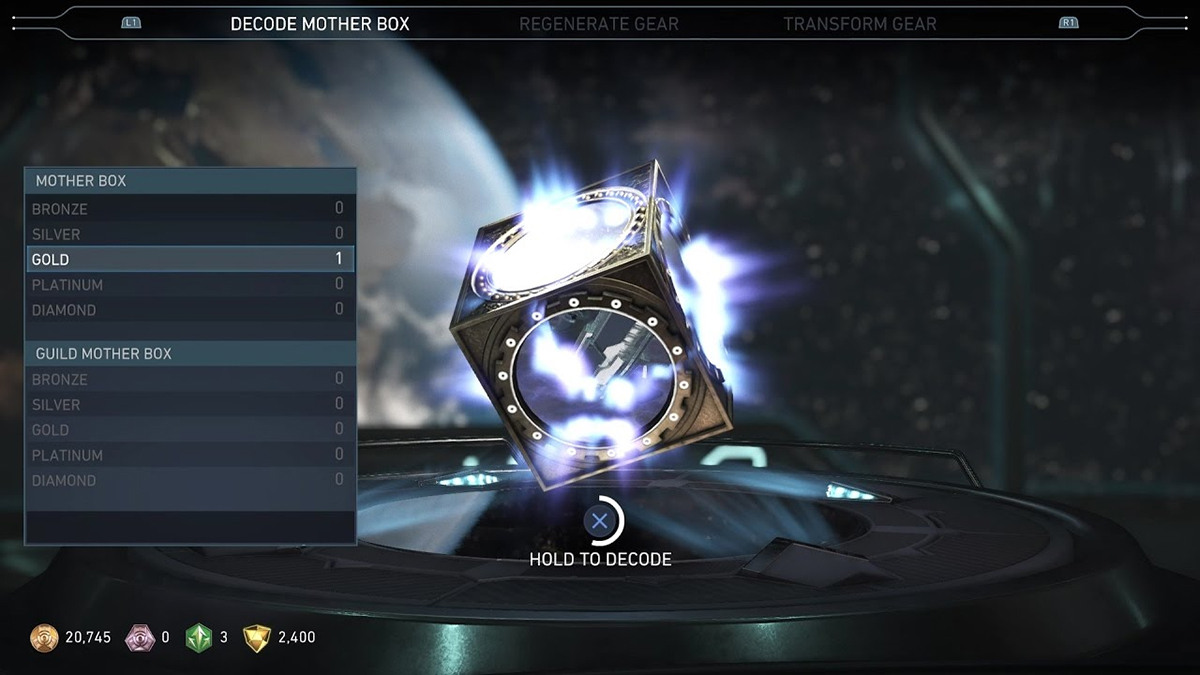
A loot box (or loot crate) is an in-game feature that sees players spending real-world money to open an item with further randomized items inside. Essentially you spend real world money to open the box (or pay for a key to open it, among other variations) without knowing what its contents are – they could be good or they could be bad.
The debate around whether in-game loot boxes are gambling rages on, with many governing bodies struggling to come to a definitive answer on the topic.
But when it comes to whether these virtual items are harmful to children, a new report by the Children's Commissioner takes a firm stance: yes, and they're not the only gaming feature that threatens "financial harm" to kids.
The Children's Commissioner is a public body which aims to promote and protect the rights of children in the United Kingdom. The body has recently released a new report titled 'Gaming the System', which examines the experiences of children who play games online.
The 37-page report (which seen the organization interviewing 29 children aged between 10 and 16) aims to lay out the potential risks involved for children who play games and makes recommendations for the government based on its findings.
In total, the report suggests 15 recommendations. The main suggestion? Loot boxes should be regulated as gambling and non-cosmetic microtransactons should be done away with entirely.
Good recommendations?

The qualitative report came to the conclusion that "monetization of gaming brings children closer to gambling", citing the fact children can spend real-world money in games – often not knowing what the reward will be – as its reasoning, along with the fact several of those surveyed felt like their money was wasted and that they were sometimes "chasing losses".
"The amount of money children spend on games varies," the report reads. "In some cases, the amount of money children report spending on games has increased annually, with some spending over £300 in one year."
Get daily insight, inspiration and deals in your inbox
Sign up for breaking news, reviews, opinion, top tech deals, and more.
"Peer pressure from friends and online strangers, as well as influence from famous gaming YouTubers, are all factors that children say lead to them feeling pressured to spend money on in-game purchases."
The report mentions FIFA Ultimate Team as a game design "encourages spending" by suggesting children can "either improve by investing significant time to build up their squad or spend money in the hope of quickly advancing their position".
As such, the organization recommends that the role of money in games should be limited altogether and states that to date action in the industry "does not go far enough" to tackle loot boxes as an issue.
"Gambling laws need updating to reflect the reality of children’s experiences of spending money within games"
Children's Commissioner
"Gambling laws need updating to reflect the reality of children’s experiences of spending money within games," the report reads.
But it's not just loot boxes that the Children's Commissioner has deemed harmful, the organization also calls for non-cosmetic microtransactions to be banned.
"Developers and platforms should not enable children to progress within a game by spending money," the report states. "Spending should be limited to items which are not linked to performance - e.g. aesthetic items such as new outfits."
Other recommendations include allowing players to track their history of spending, a cap on daily spending and a call for the government to amend the definition of gaming in the Gambling Act 2005 so that loot boxes can be regulated as gambling.
Currently the act has a loophole that stipulates that because loot boxes don't technically contain items of real world value, then they aren't actually gambling: "Where prizes are successfully restricted for use solely within the game, such in-game features would not be licensable gambling."
Alongside the potential financial harms of gaming online, the organization states in its report that other negative aspects it found included "children feeling frustrated or being teased and bullied by both friends and strangers".
The research

Now, we need to acknowledge that the research conducted for this report isn't exactly iron-clad. For a start, only 29 kids were surveyed. While the research looked to sample as many children from across as many games as possible, with different characteristics, it's still too small a sample size to make sweeping judgements on, and the games focused on were Roblox, Minecraft, Fortnite, FIFA and Call of Duty: Black Ops 4. In addition, the Children's Commissioner only focuses on the UK, so that makes the sample even more restricted.
That's not to say that these conclusions are wrong. All other data surrounding children and gambling to date points in a similar direction, although it's been hard for bodies to gather data that can definitively prove whether in-game gambling leads to issues in later life – it's just too new a phenomenon.
However, what we can look at is that The Gambling Commission released a report titled 'Young People and Gambling' in 2018 that explored the gambling behaviors of 11-16 year-olds in the UK. Yes, we know, the UK again – but as we said, the practice is so early that there's very little in the way of solid public research.
This report found 16% of the 2,865 children surveyed had paid for in-games items or loot boxes while 3% had bet with in-game items.
But again, it's such early days we don't actually know what the long term issues could be - if they exist at all.

Should you be worried?
The jury is still out on what exactly the long term effects of in-game loot boxes and microtransactions are on children. While the Children's Commissioner has raised some important issues, government doesn't have to listen to these recommendations.
Currently the UK Gambling Commission has taken the stance that loot boxes are not gambling despite similar reports being published by the likes of the digital, culture, media and sport (DCMS) committee. We've even seen the likes of Belgium and certain US states deeming the feature as gambling and regulating it as such.
The report may not have an impact on legislation but it's certainly worth noting for parents who have concerns about microtransactions and loot boxes, as there are recommendations as to how you can curb the issue from home.
An award-winning games journalist, with seven years of experience in games journalism and a degree in journalism from City University, London, Vic brings experience from IGN, Eurogamer, The Telegraph, VG247, Dot Esports and more to the TechRadar table. You may have even heard her on the radio or speaking on a panel, as she’s previously appeared on BBC Radio 4, BBC Radio 5, BBC Radio Ulster and more. Not only is Vic passionate about games, but she's appeared on both panels and podcasts to discuss mental health awareness. Make sure to follow her on Twitter for more.